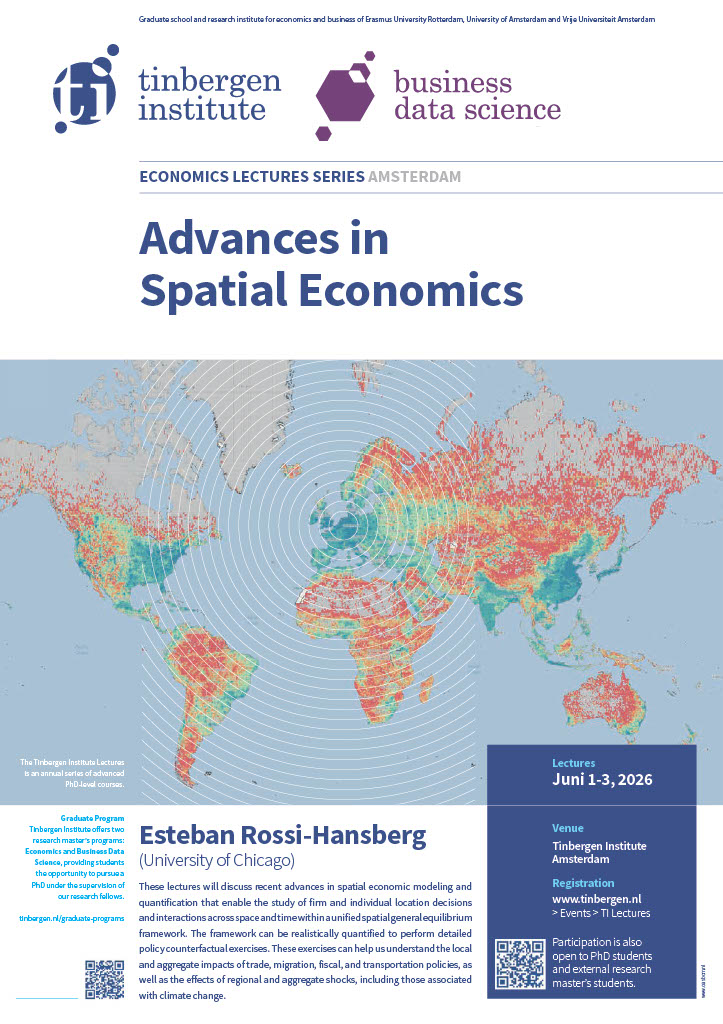TI Economics Lectures 2026
The Tinbergen Institute Lectures are an annual series of advanced PhD level courses. Participation is also open to PhD students and external research master's students.
Esteban Rossi-Hansberg will give the TI Economics Lectures 2026. He is the Glen A. Lloyd Distinguished Service Professor at The Kenneth C. Griffin Department of Economics, University of Chicago, United States. Date: June 1-3, 2026
The title of the 2026 TI Economics Lectures is 'Advances in Spatial Economics.' 
These lectures will discuss recent advances in spatial economic modeling and quantification that enable the study of firm and individual location decisions and interactions across space and time within a unified spatial general equilibrium framework. The framework can be realistically quantified to perform detailed policy counterfactual exercises. These exercises can help us understand the local and aggregate impacts of trade, migration, fiscal, and transportation policies, as well as the effects of regional and aggregate shocks, including those associated with climate change
Registration
Participation is free of charge for students enrolled in Tinbergen Institute's Research Master's programs in Economics and Business Data Science, as well as for Research Master's students, PhD students, and faculty from the affiliated schools (ESE-EUR, ASE-UvA, ABS-UvA and SBE-VU). Tuition fees apply for external participants:
External Research Master Students: €100
External (PhD) students and Faculty: €500
External/professional: €1000
Participants who want to take the exam and earn credits will be registered in OSIRIS. Note that it is the student’s own responsibility to get these credits registered at a university other than Erasmus University.
Aiming for a PhD Trajectory?
Tinbergen Institute also offers research master programs in Economics and Business Data Science with the prospect of PhD opportunities under the supervision of our research fellows. Admissions for both programs are open.